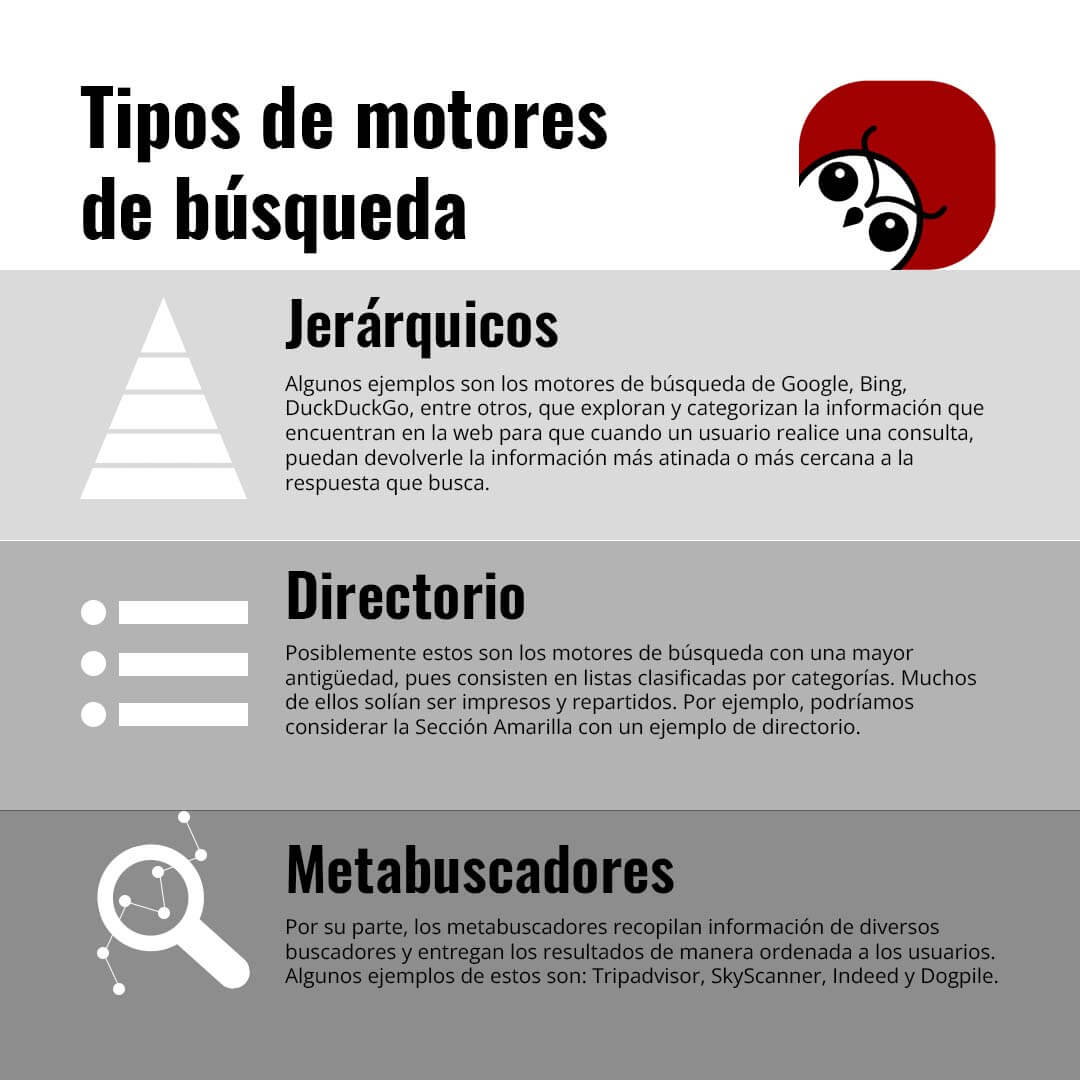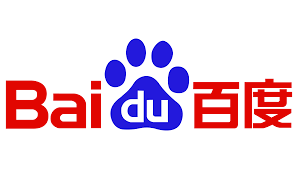Making queries in search engines is a daily task to find products, services and even answers to all kinds of questions. They are used as if they were a kind of oracle with the solutions for the problems of every day.
One of the most popular search engines is undoubtedly Google, however there are many more search engines. In this post we will tell you more about its history, what types of search engines exist, as well as how it works. In this post we will address the following topics:
What is a search engine?
It is a computer system that searches for files stored in directories, lists, or on web servers. Some search only on the web, but others also search news, services like Gopher, FTP, etc. People make queries on these engines through search terms or keywords; the search result can come from different sources.
Types of search engines
There are three types of search engines, they are classified according to how they obtain information and return it to users when they make a query.

Hierarchical
Some examples are the search engines Google, Bing, DuckDuckGo, among others, which explore and categorize the information they find on the web. When a user makes a query, they return the information that is most accurate or closest to the answer they are looking for.
Hierarchical search engines search for files stored on web servers, through their crawlers, robots or “web spiders”, that is, programs that constantly search for new pages on the Internet.
Directory
Possibly these are the oldest search engines, since they consist of lists classified by categories. Many of them used to be printed and distributed. For example, we could consider Sección Amarilla as a directory example.
Moving on to the digital realm, the IMBD movie database and Wikipedia are also search engines of this type. Social media search engines such as Instagram, Twitter, among others can be classified in this category. Even Amazon’s search engine is of this type, since it only returns the list of the products it has in its index.
Metasearch engines
For their part, metasearch engines collect information from various search engines and deliver the results to users in an orderly manner. They have been subclassified into:
- Tourist: TripAdvisor and SkyScanner offer the results of the prices of different airlines on a single page so that the user can select the best prices. On the first page, the results of the hotel rooms are also displayed.
- Of employment: Indeed displays results of jobs posted from multiple sources, on a single page. It even allows comparisons between the salaries offered for each position.
- General: Dogpile sends the query to other sites like Google or Bing to analyze and sort the results.
Since the most used search engines today are the hierarchical type and, in general, they are the ones of greatest interest for carrying out an SEO strategy, we will delve more about them.
Internet search engines
Before going into this topic, it is necessary to talk about the World Wide Web, which you probably already know as WWW o W3. It is the world wide computer network, which allows us to transmit data through information transfer protocols called HTTP. Said plain and simple, it is a system regulated by the World Wide Web Consortium institution, which issues recommendations and standards for the growth of the web.
Internet pages began to have a boom in the 90s of the last century. So the World Wide Web, founded by computer scientist Tim Berners-Lee, launched a couple of projects to organize the information that was being generated on the Internet.
Search engine history

The first search engine appears, known as Wandex, launched by the WWW; a year later, this institution also released a second search engine known as Aliweb, which exists to this day. Another successor was Altavista.

WebCrawlerwas born, as a university project, which is now known as a metasearch engine. It was sold to AOL in 1995. That same year, Lycos, a search engine that was very popular in the 1990s and which currently belongs to Terra, emerged.

The famous search engine Google is born. It uses an algorithm called Page Rank that rates the relevance of a website on a scale from 0 to 10. Until a couple of years ago this data was public, but currently the search engine uses it but it is not disclosed to the Internet users.

Baidua Chinese-language search engine, is founded. The Alexa ranking identifies it as the fourth most visited website on the Internet worldwide.

The Tor search engine is launched, which keeps the Internet user anonymous, that is, it does not reveal their IP address, which is why this technology is considered to belong to the darknet.

The Ask engine was born, which is focused on the question-answer format.

The DuckDuckGo search engine was launched, which is characterized by respecting the privacy of Internet users by returning depersonalized results (that is, regardless of what queries they have made before, they will see information that avoids the bubble filter). It is based on data from public sites like Wikipedia.

Bing is born, the Microsoft search engine that is currently based on semantic technology. Earlier this year, Microsoft and Yahoo announced that Bing would replace Yahoo Search, and this change was implemented in 2012.

Also this year, Ecosia arose, a search engine that donates approximately 80% of the income it receives to different non-profit organizations around the world related to reforestation. It has a goal of planting a billion trees by 2025.

